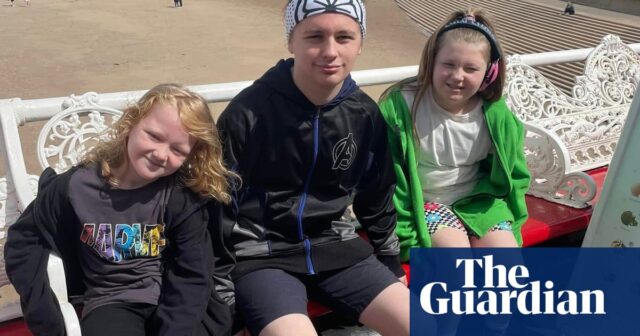It was a quiet act of generosity that briefly captured the news agenda: David Clarke, a researcher in Liverpool, made the extraordinary decision to give away the £100,000 he had inherited from his late mother a decade ago. But instead of donating it to one cause, Clarke did something radical. He wrote to 600 addresses in the L8 postcode, where he lives, inviting people to nominate where the money should go.
Clarke lost his mother in a cycling accident. “Her death was a devastating shock to me,” he says. “She had a huge social conscience and was interested in the world and how it worked – a lot of my moral framework comes from her. I don’t believe in holding on to inherited wealth, so I spent a long time thinking about what to do with the money.” Clarke wanted to do something that would speak to his mother’s values. From his research, he came across the idea of democratising philanthropy – moving the decision over what to do with donated money to communities who would benefit from it. Thirty-eight people responded to his letter, and Clarke selected 12 to form a decision-making panel. They met over four sessions to deliberate and decided to donate the money to four charities, each receiving £25,000.
One of the beneficiaries was Team Oasis, a children’s charity based in Dingle, one of Liverpool’s most deprived areas. Founded in 2003, the charity supports about 400 children and young people each week through programmes ranging from dance and theatre to football and photography workshops. It also provides free meals to 80 local families each week. Every child that attends Team Oasis is living in poverty, and half are considered physically disabled, or living with special needs and/or mental health challenges, says the charity’s founder and manager, Paul Nilson. “It has been such a debilitating time for charities, with so many being forced to close,” he says, so receiving the donation was “such a blessing”.
The extra cash helped fund site fees for caravan holidays at Talacre Beach Resort in north Wales, enabling disadvantaged families to enjoy respite holidays they might otherwise never experience. The charity also arranged a community trip to Blackpool, covering the cost of three coaches for 150 people.
For Gemma O’Brien, who has three children with special educational needs, these trips have been life-changing. “I could never get to places like that on my own with my kids,” she says. Her eldest son, who is severely autistic and has a brain injury, has thrived at Team Oasis. “They’ve made adjustments for him from day one. He found his passion for music there: he’s self-taught on guitar and piano now. It’s one of the only places where I feel safe and not judged.”
The inclusive nature of Team Oasis has made a huge difference to O’Brien. “They never turn anyone away. My daughter struggles with social situations and can have meltdowns, but they are always understanding. They make you feel supported and accepted. It’s such a big part of our routine now.”
Clarke’s donation has also helped the charity secure a lease for a new programme – Liverpool Kids Plant to Plate, which will teach children how to grow, prepare and cook their own food.
The statistics on food insecurity in Liverpool are stark. In 2023, South Liverpool food banks provided 11,479 emergency food parcels, with 4,219 going to children. The extra cash for Team Oasis means its weekly meal programmes now cater to more families, and during school holidays, children can receive free lunches during day camps. “Going to Team Oasis helps so much. It can be the difference between getting a Christmas dinner or not for so many of the kids,” O’Brien says.
Clarke says he’s proud of what his mother’s legacy has created. “It’s not just about funding. It’s about recognising the incredible work these organisations are doing and amplifying it. Hearing about the children playing on new equipment, families enjoying fresh meals or learning about sustainability, it’s a very rewarding feeling. This project wasn’t just about £100,000. It was about showing what’s possible when we trust communities to make decisions. The results speak for themselves.”
Asked if she has a message for the man who shared his inheritance, O’Brien says: “To the guy who’s donated the money, the impact it’s had is out of this world. You’ve brought that special community feeling back to us, and I don’t think many places have that feeling.”






